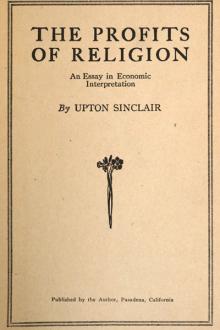Illusions by James Sully (story reading txt) 📕

- Author: James Sully
- Performer: -
Book online «Illusions by James Sully (story reading txt) 📕». Author James Sully
Reflection (of light), illusions connected with, 73, 83.
Refraction and optical illusion, 73.
Relative, sensation as, 64;
attention to magnitude and brightness as, 91;
estimate of duration as, 249.
Relief, illusory perception of, 75, 96.
Representation and presentation, 9, 10, 13, 14, 192.
Retrospection. See Memory.
Ribot, T., 238, note[114], 290, note[135].
Richter, J.P., 143.
Robertson, Professor G.C., 35, note[14].
Romanes, G.J., 105, note[52], 250, note[122].
Rousseau, 280.
S.
Savage, dream theory of, 128;
idea of nature of, 225.
Scherner, C.A., 140, 149.
Schopenhauer, A., 145, 342.
Schroeder, H., 85.
Science, philosophy and, 8, 36, 285, 344;
conception of the material world in physical, 36, 343, 346, 347;
and common cognition, 338, 357.
Scott, Sir W., 116, 125.
Secondary qualities, 36, 344.
Selection, process of, in perception, 95;
in dreams, 174;
in memory, 257, 263.
Self, confusion of, in dreams, 163;
introspective knowledge of, 192;
self-deception, 200;
identity of, 241, 282, 285;
confusion of present and past, 267, 284;
disturbances in recognition of, 287, 289;
momentary confusions of, 295;
confusion of present and future, 305.
Self-esteem, illusion of, 315;
origin of, 319;
utility of, 342.
Self-preservation, 320.
Sensation, element in perception, 20;
discrimination and classification of, 21;
interpretation of, 22;
inattention to, 39, 87;
modified by central reaction, 39, 87, 89, 91;
confusion of novel, 40;
indistinct, 41;
misinterpretation of, 44;
relation of, to stimulus, 46, 50;
limits to discrimination of, 52;
after-impression, 55;
subjective, 59, 62, 107, 143;
localization of, 59.
Sensibility, limits of, 50;
variations of, 64.
Sensualism, philosophic, 348.
Shadow, cast, 77.
Shakespeare, 3.
Sight, mode of perception, 19, 33, 34, 48, 49;
local discrimination in, 52;
single vision, 54;
localization of impression in, 60;
in sleep, 139;
images of, in sleep, 150, 154.
Single, vision, 54;
touch, 72.
Sleep, mystery of, 127;
physiology of, 131.
Sleight of hand. See Conjuror.
Smell, as mode of perception, 34, note[14];
localization of impression in, 60;
subjective sensations of, 108;
in sleep, 141;
and taste, 171.
Solidity, illusory perception of, 75, 96.
Space, representation of, 207.
Specific energy of nerves, 58.
Spectra, ocular, etc. See Subjective sensation.
Spencer, Herbert, 32, note[12], 128, note[69], 323, 340.
Spinoza, 143, 184.
Spiritualist séances, 103, 107, 123, 265.
Stereoscope, 75.
Stewart, Dugald, 172, 306.
Stimulus, qualitative relation of, to sensations, 46, 58, 67;
quantitative relation of, to sensation, 50, 64;
after-effect of, 55;
prolonged action of, 56;
subjective or internal, 62;
exceptional relation of, to organ, 70;
action of, in sleep, 135, 139, 143;
in hypnotic condition, 186.
Strümpell, L., 144, 147, note[89].
Subjective, experience, 26, 27, 137, 214;
movement, 51, 57;
sensation, 59, 62, 107, 113, 121, 143.
Suggestion, by external circumstances, 30, 44, 89, 91, 267;
verbal, 30, 106, 188, 215, 268, 301, 310.
Symbol, dream as, 129, 149.
Sympathy, basis of knowledge, 223;
and illusion of insight, 223;
and illusion of memory, 277;
and momentary illusion, 293.
T.
Taine, H., 60, note[29], 108, note[54],117, note[59], 137,
298, note[137], 356, note[158].
Taste, æsthetic. See Æsthetic intuition.
Taste, localization of impression in, 60;
subjective sensations of, 63;
variations in sensibility, 68;
activity of, in sleep, 141;
and smell, 171.
Temperament, a factor in sense-illusion, 101;
in dreams, 137;
in illusory belief, 325;
in illusion generally, 334, note[149].
Temperature, sense of, 65.
Tennyson, A., 226.
Testa, A.J., 131.
Testimony, of consciousness, 205;
fallacies of, 265;
to identity, 267.
Thaumatrope, 56.
Theatre, illusion of the, 104, 222;
self-deception of the actor, 200.
Thompson, Professor S.P., 51, note[17].
Thought, in relation to belief, 326.
Time, retrospective idea of, 239, 246, 250;
constant error in estimate of, 245;
subjective estimate of, 249;
contemporaneous estimate of, 250;
sense of, in insanity, 290;
prospective estimate of, 303.
Touch, as form of perception, 33, 34, 49;
local discrimination in, 52;
subjective sensations of, 62;
variations in sensibility of, 65;
in sleep, 141.
Transformation, in perception, 94;
of images in dreams, 163;
in memory, 262, 267;
in expectation, 305.
Trick. See Conjuror.
Tuke, Dr., 110.
Tylor, E.B., 128, note[69].
U.
Unconscious, inference, 22, 68, 269, 335, note[150];
mental activity, 133, 235;
impressions, 41, 152.
Useful. See Beneficial.
V.
Vanity. See Self-esteem.
Venn, J., 299, note[139].
Ventriloquism, 82.
Verification, of sense-impression, 38, 351;
of self-inspection, 210;
of memory, 291.
Verisimilitude, in art, 80, 88;
in theatrical representation, 104;
in dreams, 168.
Vierordt, 245.
Vision. See Sight.
Visions, 1, 110;
dreams regarded as, 128, 131.
Vital sense. See Cœnæsthesis.
Voice, internal, 119, 194;
activity of, in dreams, 155.
Volition, and perception, 95;
absence of, during sleep, 137,172;
co-operation of, in correction, of illusion, 352.
Volkelt, J., 172.
W.
Weber, E.H., 43.
Weinhold, Professor, 186.
Wetness, perception of, 53.
Wheatstone, Sir C, 75.
Wheel of life, 56.
Will. See Volition.
Wordsworth, W., 281.
World, our estimate of, 323, 326, 327;
scientific conception of material, 8, 36, 343, 344;
reality of external, 344-346, 349, 353, 355, 360.
Wundt, Professor, W. 13, note[2], 31, note[11], 32, note[12], 58, note[27],
67, note[34], 75, 93, note[47], 118, note[63], 136, note[77], 139, 143,
177, 246, 247, note[119], 251, 252, 254.
THE END
[1] A history of the distinction is given by Brierre de Boismont, in his work On Illusions (translated by R. T. Hulme, 1859). He says that Arnold (1806) first defined hallucination, and distinguished it from illusion. Esquirol, in his work, Des Maladies Mentales (1838), may be said to have fixed the distinction. (See Hunt's translation, 1845, p. 111.)
[2] This fact has been fully recognized by writers on the pathology of the subject; for example, Griesinger, Mental Pathology and Therapeutics (London, 1867), p. 84; Baillarger, article, "Des Hallucinations," in the Mémoires de l'Académie Royale de Médecine, tom. xii. p. 273, etc; Wundt, Physiologische Psychologie, p. 653.
[3] I here touch on the distinction between the psychological and the philosophical view of perception, to be brought out more fully by-and-by.
[4] It might even be urged that the order here adopted is scientifically the best, since sense-perception is the earliest form of knowledge, introspected facts being known only in relation to perceived facts. But if the mind's knowledge





Comments (0)